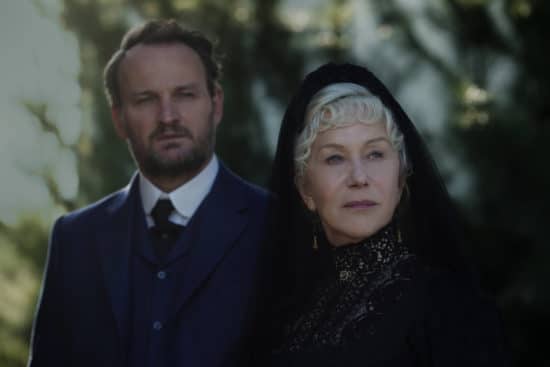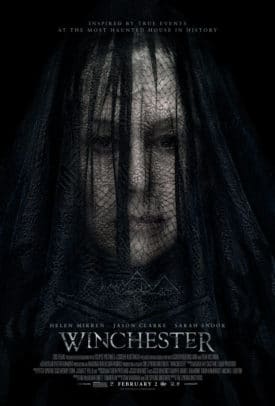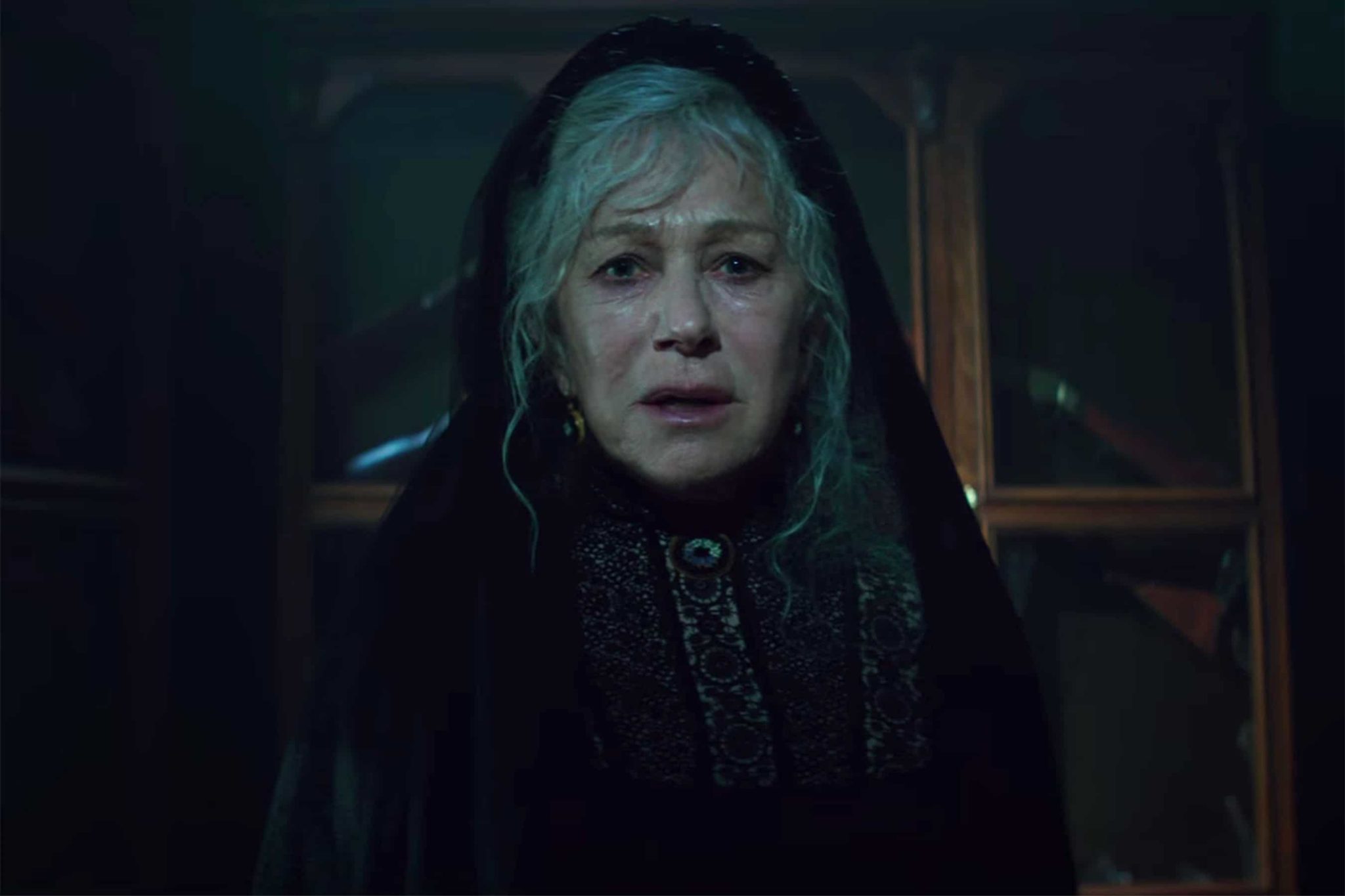 With the Paranormal Activity series still fairly fresh in the memory, and the ongoing box office success of the Insidious and The Conjuring franchises, the ghost movie has seemingly never been more popular – and arguably never in greater need of a shot in the arm. We all know the routine: dark rooms, lengthy silences, jump scares, initial scepticism rapidly proved dead wrong. It’s been done time and again, and will doubtless continue to be done over and over, so long as people keep paying to see these movies.
With the Paranormal Activity series still fairly fresh in the memory, and the ongoing box office success of the Insidious and The Conjuring franchises, the ghost movie has seemingly never been more popular – and arguably never in greater need of a shot in the arm. We all know the routine: dark rooms, lengthy silences, jump scares, initial scepticism rapidly proved dead wrong. It’s been done time and again, and will doubtless continue to be done over and over, so long as people keep paying to see these movies.
Yet for some reason, I found myself holding out hope that Winchester would break with convention in just the right way. Let’s face it, while ghost movies of this nature may be a penny a pound, they don’t typically snare lead actors as illustrious as Academy Award-winning national treasure Dame Helen Mirren. Nor, in recent years at least, do they tend to have a central conceit which lends itself to timely fears and sociopolitical debates. Yet Winchester has all this, whilst also delivering that special detail that the makers of ghost movies seem to prize above all else: it’s based, however loosely, on real-life events.
Sad to say, none of this makes Winchester an above-average ghost movie. In fact, it feels as though the powers that be have done all in their power to ensure it would not be anything more than that, despite the wealth of potential for something greater.
It’s 1906. Mirren is Sarah Winchester, aged widow of William Winchester, who left her the heiress and majority shareholder of the Winchester Repeating Arms Company. Prior to her husband’s death, Sarah and William also lost their only child to illness, and the weight of this grief has understandably taken its toll. Allegedly at the advice of spiritualists, Mrs Winchester has taken up residence in what was originally (by super-rich standards) a fairly modest eight-room mansion in San Jose, but over the years she has been developing the property on a constant basis, adding room after room in bizarre formations which, in the eyes of most, defy all sense and reason. This, combined with pressure from Sarah to reduce the company’s emphasis on firearms and start producing more innocuous items like roller skates, has left the Winchester company board members doubting whether she is still mentally fit to be in charge of such a major money-making organisation. To this end, psychologist Dr Eric Price (Jason Clarke) is hired to assess Sarah’s mental health over the course of a week’s stay at Winchester House. On arrival, Price is naturally bemused by the house, as well as being a tad concerned for the well-being of Sarah’s niece and her young son; but the biggest shocker of all is the strange goings on, with an abundance of things going bump in the night. It seems Sarah believes herself cursed, doomed to be haunted forever by all those who lost their lives to Winchester firearms, and has added the innumerable extra rooms in order to house those tortured souls. But as a man of science, Price knows this is nothing but deluded, superstitious nonsense – isn’t it…? (Cue an ominous creak, and a sudden loud jump-scare noise.)
 Again, this is by now a very, very familiar set-up, although with a lead as strong as Mirren, and the fairly creative Spierig Brothers calling the shots, there’s certainly cause for optimism going in. And for a little while, it does seem we might have something a bit more interesting than your average contemporary haunter. For starters, Clarke’s Dr Price is set up as a colourful character in his own right, with a more than casual taste for booze, laudanum and women of ill repute. His abstinence from said habits is a condition of his stay at Winchester House, and as such, when he first starts seeing and hearing things it’s naturally suggested it might be a side-effect of the withdrawal. His sessions with Sarah are also clearly intended to present a science-versus-superstition angle, and had the film pursued this more ambiguous, debate-driven path – as, say, Mike Flanagan’s superior ghost movie Oculus does – we might have had something considerably more interesting.
Again, this is by now a very, very familiar set-up, although with a lead as strong as Mirren, and the fairly creative Spierig Brothers calling the shots, there’s certainly cause for optimism going in. And for a little while, it does seem we might have something a bit more interesting than your average contemporary haunter. For starters, Clarke’s Dr Price is set up as a colourful character in his own right, with a more than casual taste for booze, laudanum and women of ill repute. His abstinence from said habits is a condition of his stay at Winchester House, and as such, when he first starts seeing and hearing things it’s naturally suggested it might be a side-effect of the withdrawal. His sessions with Sarah are also clearly intended to present a science-versus-superstition angle, and had the film pursued this more ambiguous, debate-driven path – as, say, Mike Flanagan’s superior ghost movie Oculus does – we might have had something considerably more interesting.
However, any hint of ambiguity on the matter goes out the window before you can say ‘boo.’ There’s really never any question that the ghosts are real, and it’s all just a matter of Price coming around to believing, which the film seems in far too much of a hurry to get to. The editing is way too obtrusive; it feels like every time things start to get interesting, we immediately cut away to something else, regardless of whether the scene has reached a natural conclusion. It all reeks of filmmaking by committee, with more attention paid to test screening scores than actual drama, and a determination to keep the action moving thick and fast for fear of losing the audience’s attention. It’s all pretty insulting, and a tremendous waste of a cast that deserves far better. Oh, and if you imagined that a film centred on the trail of dead left by an arms empire might in some way reflect on the contemporary gun control debate and America’s mass shooting epidemic, you can forget about it; again, anytime the film gets close to making anything resembling a political statement, we cut to something else, because God forbid we alienate anyone watching, right?
It’s all such a shame, because – while I know next to nothing about the real Sarah Winchester, or the Winchester Mystery House – it’s clearly a fascinating subject which lends itself to cinematic adaptation. The house itself is a great setting, and quite beautiful; again, with a little more heart and doubtless a fair bit more money thrown in, we might have at least had a Gothic period piece to match the aesthetic beauty of Crimson Peak. Alas, Winchester never dares to go all out in any capacity, always content to deliver just enough – which, of course, is never enough if you’re trying to make a real Gothic horror.
Winchester is in cinemas now.
